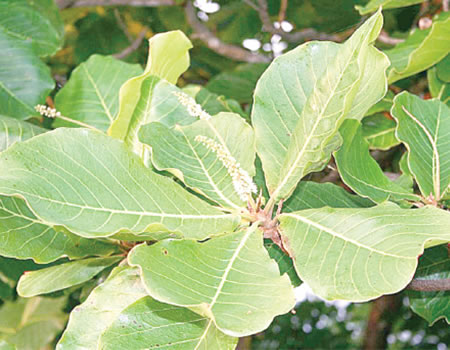Generally speaking, coughing is perfectly normal. A cough can help to keep the throat clear from phlegm and other irritants. However, sustained coughing can also be symptom of many respiratory diseases such as asthma, chronic bronchitis and pneumonia.
We’ve developed 50 years development plan for Ogun ― Amosun
Oftentimes, coughs due to colds, allergies, and sinus infections are treated with a number of over-the-counter medicines. Bacterial infections will require antibiotics. However, many medicinal herbs can be used to treat or prevent respiratory complaints such as a cough due to chemical irritants.
Most popular cough medicines throughout the world are based on herbal derivatives. The number of plants that have been accepted as a useful cough suppressant by different societies is immense.
Research has shown that many herbal drops are useful for treatment of coughs. A common one is the cough drops made with honey, lemon, eucalyptus, sage, thyme, or peppermint.
Honey is a remedy for a sore throat. According to one study, it can also relieve coughs more effectively than over-the-counter medicines that contain dextromethorphan (DM), a cough suppressant.
There is evidence that eating pineapple, a rich source of bromelain, an enzyme found only in the stem and fruits of pineapples, can help suppress coughs as well as lose the mucus in the throat. Also, while the remedy may seem relatively simple, a salt and water gargle can help soothe a scratchy throat that causes a cough.
Are these the best herbal drops for coughs due to chemical irritants? Well, Iranian researchers’ review of many medicinal herbs to relief cough due to chemical irritants indicates Nigella sativa (black cumin) and Linum usitatissimum (flaxseed) the most potent to treat coughs induced by sulphur dioxide. The burning of fossil fuels such as coal, oil and natural gas is the main source of sulphur dioxide emissions.
Artemisia absinthium showed a higher effect to prevent or relieve a cough induced by ammonia compared with the other studied medicinal plants. The effects of Cuminum cyminum (cumin) and Glycyrrhiza glabra were more potent on cough induced by citric acid than other medicinal plants.
The researchers suggested in the 2018 edition of the Alternative therapies in health and medicine that more studies are still required in humans to further ascertain the therapeutic potential of common medicinal plants in the treatment and prevention of a cough.
Nigella sativa has been proved to be effective against asthma and Dyspnea under laboratory conditions. Artemisia absinthium commonly known as wormwood is used as a cardiac stimulant, for the restoration of declining mental function and inflammation of the liver and to improve memory and against acute liver injury.
Previously, researchers confirmed the usefulness of Acanthospermum hispidum as a cough suppressant. Its extracts exhibited strong and significant cough suppressant effects in sulphur (IV) oxide and ammonia-induced cough models in mice.
However, it worked better in suppressing ammonia-induced cough (86.6 per cent) than sulphur (IV) oxide induced cough (47.2 per cent).
The 2017 study, documented in the International Journal of Pharmacological Research involved Collins Azubuike Onyeto; Peter Achunike Akah and Adaobi Okafor, all from the University of Nigeria Nsukka.
Acanthospermum hispidum is a plant widely used in South Eastern Nigeria to treat a cough. Called Dagunro in Yoruba or “kashin yawo” in Hausa, Acanthospermum hispidum is used in the treatment of various ailments including diabetes, diarrhoea, skin diseases, malaria and parasitic worms.
In addition, Picralima nitida and Terminalia chebula (Almond fruits) are plants that promise to be an effective cough suppressant. Apart from the evidence obtained from the indigenous population with regard to its efficacy in a cough, researchers in 2016 edition of Research in Pharmaceutical Sciences confirmed experimentally that it dose-dependently reduced cough count, and increased significantly the latency of a cough.
Also, they said that Picralima nitida had expectorant and analgesic effects, indicating its possible effectiveness in the management of pain associated with a cough. Animals used for the study also showed no physical signs of toxicity.
Along with this, extracts of Terminalia chebula, when administered at dose level 500mg/kg, offered maximum cough suppressive effects that were compared to codeine; dextromethorpha and saline.
The excellent cough suppression activity of codeine, a narcotic antitussive, is accompanied by serious side effects, which could limit its use.
In 2013, the researchers in the journal, ISRN Pharmacology found that extract of Terminalia chebula has a quite good ability to inhibit chemically induced cough.
Fruits of Terminalia chebula are considered in ayurvedic medicine as useful in asthma, cough, sore throat, thirst, vomiting, bleeding piles, pains, chronic and recurrent fever, diarrhoea, diabetes, dysentery, anaemia, and eye diseases. Fruits, coarsely powdered and smoked in a pipe, afford relief in the fit of asthma.





